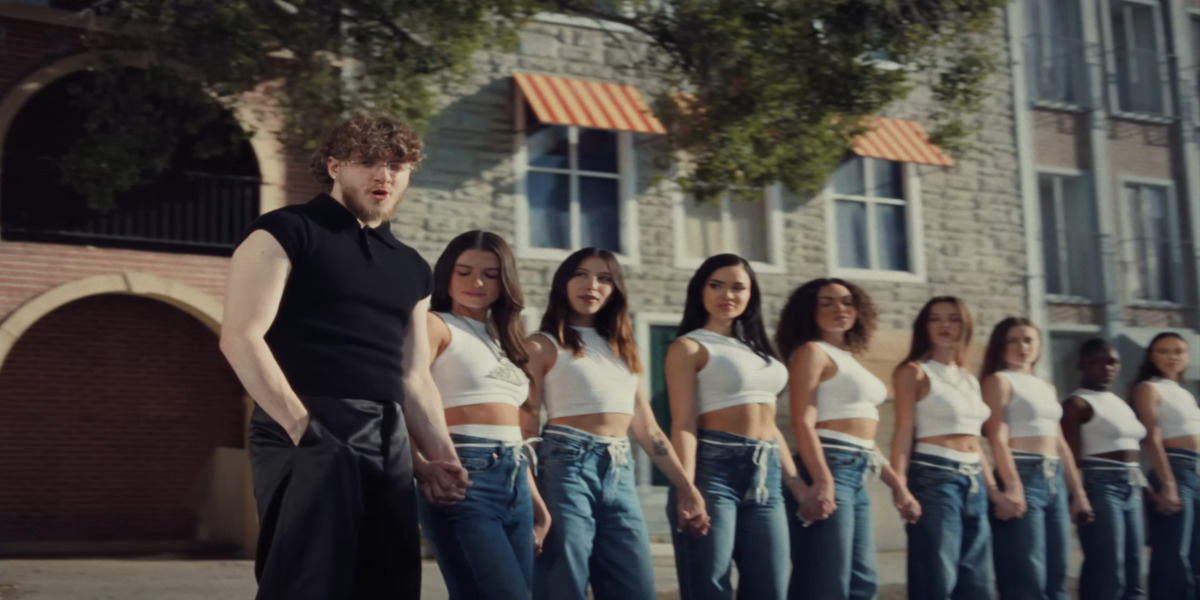One Jack Harlow Line in JungKook Collab Prompts Mixed Feelings Among Asian Listeners

JungKook’s 3D featuring Jack Harlow was hyped by many fans for its choreography and upbeat tune. Jack Harlow also received some love for his verse and his appreciation of ABGs (Asian Baby Girl), but that was until a TikTok user said “nary was an ABG seen” in the music video. Harlow co-wrote the song but was also revealed to have no idea of what ABG stands for. The music video allegedly has no Asian women standing with Harlow in his scene, and Harlow using the term in the song isn’t sitting well with some Asian women.
Asian Baby Girl has been popularized as an aesthetic on TikTok in recent years. It’s an aesthetic that depicts Asian women in perfect sharp makeup with thick falsies and plump lips, lots of tattoos, and covered in trendy designer brands from head to toe. The quintessential ABG loves boba dates and parties hard, or that’s what’s left of the ABG in her resurgence.
The term ABG once pertained to Chinese-American women who broke away from the model minority stereotype imposed on Asian women. ABGs of the 90s dated or hung out with gangsters. They fought hard and partied even harder. But make no mistake, they didn’t want to be baddies for the sake of being baddies. They were daughters of immigrants, and being an ABG is their way of immersing and integrating themselves into American culture without being seen as a “loser.”
While most ABGs no longer hang around gangs, they’ve not lost their rebellious spirit. Some Asian American women subscribe to the ABG label, its aesthetics, and its lifestyle of partying to break the monotony and anxiety caused by high expectations as a daughter in an Asian household. There are also Asian American women who identify with the ABG label as a way to reconcile their Asian heritage and their American upbringing. Friends and family who grew up far away from the Philippines and China express and celebrate their unique, non-western features through the aesthetics of the ABG. They meet other Asian women through the label and find communities that make them feel at home in a foreign land.
With the term ABG becoming internationalized, a Filipino-Chinese of mine friend from the Philippines identifies as an ABG. Her sentiments echo the core of what it means to be an ABG. To her, Asian women aren’t defined solely by academic grind. Being an ABG means Asian women can embrace their culture and heritage while fighting against stereotypes unfairly placed on them.
The problem with Jack Harlow throwing in the term ABG isn’t just Asian women were missing when he was rapping about them in 3D. That’s part of it, aside from the fact that none of these women in his lineup took aesthetics and styling tips from ABGs. The bigger issue is the use of the term. Harlow used the term to compliment women in an ornamental and sexual context as described by the lyrics in his verse. Before people come here and say that “it’s not that deep”, understand that Asian women (including myself) have been on the receiving end of sexual fetishization for our otherness.
Maybe it’s not that deep for you. In fact, some Asian women might’ve felt giddy over Harlow’s shoutout in 3D. But we’re not ABGs because we get cute for you, Jack. We exist outside of Asian stereotypes and beyond the male gaze.
(featured image: HYBE Labels)
Have a tip we should know? [email protected]